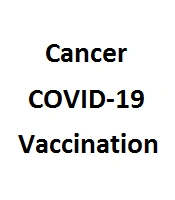Because the immune system of cancer patients is suppressed, they are at increased risk of various infections. In cancer patients, infection is not only associated with several complications but also may interrupt their treatment. Besides, such infections may cause hospitalization, which has negative consequences (1).
According to an old belief, people with a weak immune system (e.g., cancer patients) cannot mount an immune response to vaccines. However, evidence suggests otherwise. For instance, several studies have investigated the impact of the flu vaccine on cancer patients and reported confer protection. The same is true for the pneumococcal vaccine, which, generally speaking, cancer patients should receive.
Special cases may include patients with hematologic malignancies that their immune system is destroyed and have experienced profound immunosuppression. Few studies have investigated immunization during this immunosuppressed period. However, according to the currently available evidence, once cancer patients are through this immunosuppressed period, they can be vaccinated successfully. Currently, several coronavirus vaccines are in human clinical trials, and about 17 have passed all phases. Moreover, nearly 85 vaccines are in the preclinical stage (i.e., testing on animals) (2).
It's reported that COVID-19 infection may cause severe negative consequences for cancer patients, including acute respiratory distress syndrome (28.6%), septic shock (3.6%), and acute myocardial infarction (3.6%). It worth noting that 28.6% of patients were infected with COVID-19 during hospitalization (i.e., nosocomial transmission), which indicates the importance of preventive strategies in outpatient settings. On the other hand, it reveals the importance of COVID-19 testing for cancer patients (3). Liang et al. reported that cancer patients are at enhanced risk of intense infections, mainly due to their weak immune system and anticancer treatments like chemotherapy or surgery. For instance, cancer patients infected with COVID-19 are at increased need for mechanical ventilation (by 3.5 times), intensive care unit (ICU) admission, and death. A study has reported that chemotherapy is associated with increased complications of COVID-19. However, the increased risk of severe complications is not true for all types of cancers (e.g., patients with lung cancer) (4). A recently published retrospective cohort study on 28 cancer patients with confirmed COVID-19 from hospitalized at three hospitals in Wuhan (China) has assessed the risk factors associated with ICU admission, mechanical ventilation, or death. The study reported that COVID-19-infected cancer patients have a high risk of poor clinical outcomes, severe events, and mortality (3).
Cancer patients should be prioritized for COVID-19 vaccination. However, covering those with a history of cancer is not clear yet. It worth noting that those who survived cancer are not at increased risk of infection. Only in the United States, there are about 17 million people with a history of cancer. Hence, providing evidence regarding their risk of COVID-19 infection is vital (4). Also, available evidence indicates that cancer patients, in particular those with hematological malignancies, should be prioritized for COVID-19 vaccination (5). Some evidence suggests that cancer patients are at increased risk of dying due to COVID-19 (by two times), the team notes. This increased risk is observed even after controlling for confounders such as age, sex, and comorbidities (5). Some of the developed COVID-19 vaccines are based on mRNA, and some are based on protein, adenoviruses, and inactivated or attenuated coronavirus. The latter may not be appropriate for cancer patients, particularly for those with a rapidly progressing disease or on chemotherapy.
Incidentally, the technology used in the genetic or mRNA-based vaccines was initially developed for fighting cancer. Besides, there are studies indicating that patients may present immune responses to cancer-associated proteins with this type of vaccine. These genetic vaccines could turn out to be the most effective for cancer patients, especially those with solid tumors. Two of the most important questions for cancer patients are dosing and booster schedule. Potential defects in lymphocyte function among cancer patients may require unique initial dosing and booster schedules. Concerning the timing, it is unclear how active therapy might affect a patient's immune response to vaccination and whether vaccines should be timed with therapy cycles. Vaccine access may depend on whether cancer patients are viewed as a vulnerable population. Those at higher risk for severe COVID-19 have a greater need for vaccination. While there are data suggesting that cancer patients are at increased risk of COVID-19 infection, they are a bit murky, in part because cancer patients are a heterogeneous group. For example, there are data suggesting that lung and blood cancer patients fare worse. There is also a suggestion that, like in the general population, COVID-19 risk in cancer patients remains driven by comorbidities.
It is likely, then, that personalized risk factors such as type of cancer therapy, site of disease, and comorbidities will shape individual choices about vaccination among cancer patients (2). To sum up, it can be concluded that COVID-19 vaccines should be considered as a high priority for hematological malignancy and cancer patients.
